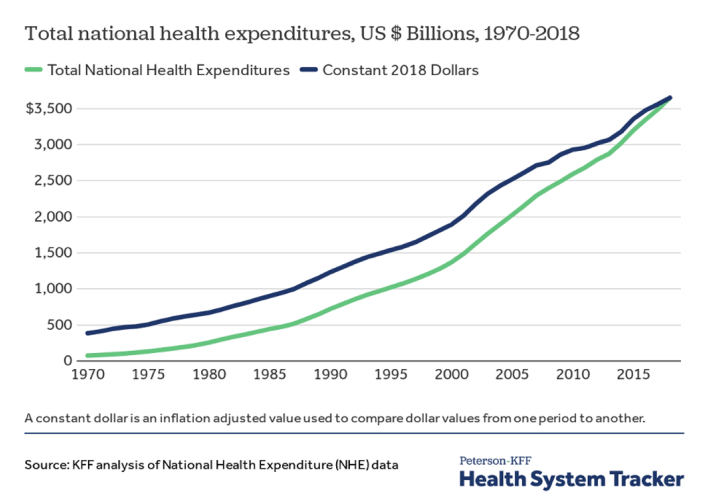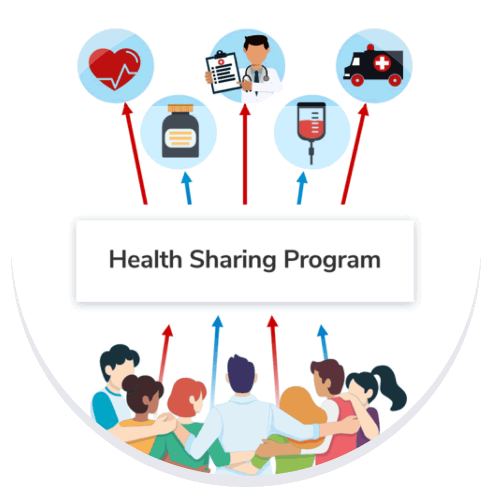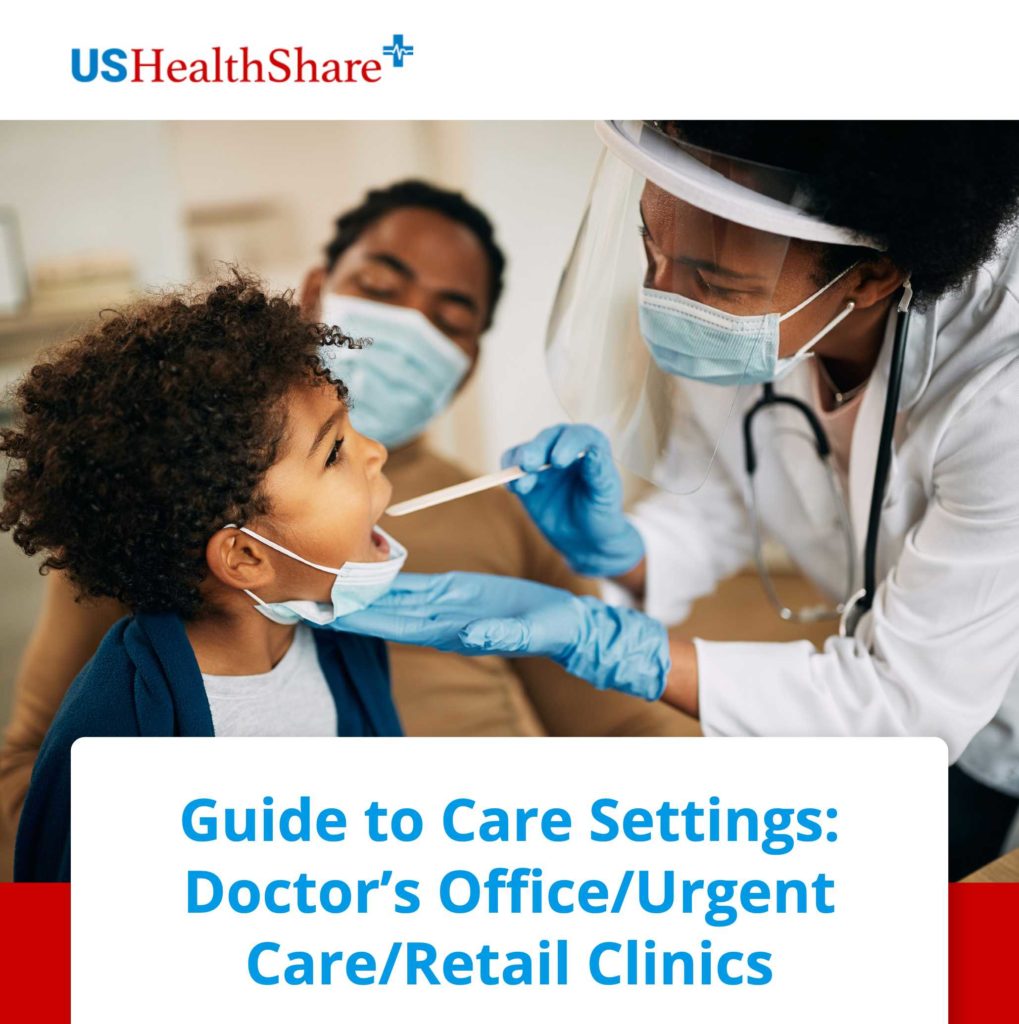Health Share Programs

READ ON THIS PAGE:
Health Share Programs 101: Everything You Need to Know
When you’re contemplating joining a health share program, you will likely have questions such as:
- What are health share programs?
- How do health share programs work?
- What makes them different from insurance?
- Why would a person choose health share programs rather than insurance?
- What types of people choose health share programs?
- What types of benefits do health share programs offer?
We have the answers.
What is a Health Share Program?
Health share programs, sometimes called healthcare sharing ministries, are organizations made up of individuals and families who voluntarily share the cost of each other’s health care. Members of health sharing organizations share common beliefs and agree to help each other by sharing in the costs associated with eligible medical expenses.

How Health Sharing Works
When members receive medical services, they request member-to-member sharing and eligibility is determined. These health sharing organizations coordinate voluntary monthly financial contributions from their members in an effort to support the medical needs of all sharing members. Through this participation, members are helping others who share a common belief system.
Healthcare share programs have existed along with conventional health insurance plans for years, though they have increased in popularity since the Affordable Care Act (ACA) was passed back in 2010.
Health sharing ministries offer a range of programs at varying monthly contribution amounts for those who are looking to keep their medical costs low by sharing their health care expenses with other households.
Those who wish to be a part of a health care sharing organization must meet certain criteria to be eligible for membership. For instance, in faith-based health share programs, interested parties must maintain a healthy lifestyle and understand that they will be a part of a community of like-minded people of faith.
Accepted members will choose a health sharing program and contribute a set monthly amount that is used to help pay for other members’ eligible medical needs. Members are then able to access funds in return if they incur medical costs that fall under the category of Eligible Medical Needs.
Just as people have several options when choosing a traditional health insurance policy, there are a number of different types and levels of health share programs from which to choose. Though health share programs are not insurance plans, they do offer a variety of flexible options to meet the needs of members.
How Health Share Programs Differ from Health Insurance
Health cost sharing programs are not insurance plans. There are significant differences between the two. Health sharing entities are non-profit, charitable organizations that are designed to help members pay for medical expenses by utilizing funds from other members.
Many of the differences in health insurance and health share programs involve the members’ rights to choose what type of medical expenses will be covered and who will be eligible for membership. Health insurance plans must comply with the Affordable Care Act. This means that insurance plans must accept all sorts of people with all sorts of medical issues. This can drive up the total cost of insurance plans and put comprehensive plans out of financial reach for many Americans.
Health share programs, on the other hand, are not bound by ACA requirements and therefore can be more selective in their approval of members, which can ultimately result in cost savings for the entire membership.
Here are some of the differences between insurance and faith-based health sharing programs:
| Health Share Program | Health Insurance |
|---|---|
| Eligibility for membership is dependent only upon the standards outlined by the health sharing ministry. The ministry is free to limit membership to those in good health, thus saving money for the entire membership. | Members with pre-existing conditions must be accepted in order to comply with ACA policies |
| Members are expected to share common faith beliefs and adhere to lifestyles that reflect those beliefs. | Members with pre-existing conditions must be accepted in order to comply with ACA policies |
| No guarantees are made regarding payment of specific medical bills. Eligibility for sharing is based on the program and its guidelines. | Insurance providers guarantee what is and isn't covered, the amount paid, and the portion customers pay based on their policy. |
| Non-profit | Mostly for-profit |
| The healthcare sharing ministry facilitates sharing of member share requests to pay for eligible medical expenses. | Claims are processed according to signed contract provisions. |
| An Explanation of Share (EOS) is provided when Share Requests are processed. | Explanation of Benefits (EOB) must be provided when claims are processed. |
Benefits of Health Share Programs
There are several benefits that come with being a part of a healthcare sharing ministry:
Much more affordable than traditional health insurance: Many members see savings as much as 50 percent when compared to health insurance.
Negotiated rates for medical and pharmacy services: Quality healthcare sharing programs contract with established provider networks and negotiate fair, reasonable, and affordable rates for typical things like a doctor’s office visit or a 30-day supply of generic forms of medication.
Programs tailored to specific needs: Health sharing programs offer a wide range of programs with benefits to accommodate your budget and medical needs– some programs with only medical services and features, and then others with comprehensive programs that include prescription features.
Exclusivity: Rather than being required to pool resources in an insurance pool that cannot select members based on health or lifestyle choice, health sharing programs give members the freedom and ability to choose to share costs with other like-minded families.
Freedom to choose: With health share programs, members can choose their preferred doctor or specialist; however, they must be part of the health sharing program’s contracted provider network.
Opportunity to be part of a community: As a member of a faith-based healthcare sharing program, you can be assured that your monthly contribution will be used in the service of like-minded people.
What Types of People Choose Health Share Programs?

Health sharing ministries are not necessarily for everyone, but there are specific demographics that are better suited for participating in health share programs.
These may include people who meet the following criteria:










Families of a individual receiving employer benefits. Many people seek and receive the coverage of an employer health insurance plan; however, the cost to insure a spouse and / or dependents can be completely unaffordable. Healthcare sharing programs can be an ideal solution for those dynamics.

If you’re unsure whether you’re a candidate, it’s best to speak with experts who specialize in healthshare programs.

Want to learn more about Care Settings?
Download our free PDF guide to learn about your options.
What Kinds of Medical Services Will Health Share Programs Provide?
Just as you would normally do research to find the right insurance coverage for your family’s specific needs, you will also need to research different options among healthcare share programs. Many health share ministries offer a variety of programs to fit your budget and your health circumstances.
Here are some of the common medical services and features that many health share programs have:
- Annual wellness and preventive care (aka Annual Checkup)
- Telehealth
- Primary Care Physician Visits
- Urgent Care Visits
- Specialist Visits
- Emergency Room Visits
- Ambulance Service
- Diagnostic X-Ray, Imaging, and Lab Services
- Hospitalization
- Prescriptions
To confirm what your particular program offers as far as features, you can refer to program brochures/details and the member guidelines of your health share ministry.
Frequently Asked Questions
Healthcare sharing, also known as health share or medical sharing, are health sharing programs for members who share Christian beliefs and commitments to living healthy. For many individuals and families, these programs are viable alternatives to traditional health insurance because they help alleviate the cost and expense of medical bills, while providing quality healthcare.
Medical Sharing and health share plans are not insurance, and medical expenses are not guaranteed. Instead, these programs facilitate the sharing among members, who voluntarily help one another with medical expenses. These plans are generally much more affordable than the cost of traditional health insurance.
While health sharing programs help with healthcare costs, health sharing programs are not insurance plans. Health sharing entities are non-profit, charitable organizations that are designed to help members pay for medical expenses by utilizing funds from other members.
Health insurance plans must comply with the Affordable Care Act. This means that insurance health plans must accept all sorts of people with all sorts of medical issues. This can drive up the total cost of insurance plans and put comprehensive plans out of financial reach for many Americans.
Health share programs, on the other hand, are not bound by ACA requirements and therefore can be more selective in their approval of members, which can ultimately result in cost savings for the entire membership.
- Annual wellness visits and preventive care
- Visits to your primary care physician or specialists
- Diagnostic imaging and lab services
- Urgent care and emergency department visits
- Hospitalization
- Physical, occupational, and speech therapy
- Outpatient hospitalization services
- Durable medical equipment
- Pharmacy services – many times high-quality prescription benefits that align with different tiers of drugs
Not all Christian healthcare programs offer benefits for these medical and pharmacy services, so it is important to carefully review and understand what your specific program covers.
Although health sharing is not insurance, it is recognized by the HHS as “coverage” and is a legitimate alternative to health insurance for many individuals and families. Members who choose health sharing are clearly advised that these programs are not health insurance.
Health share plans or Christian healthcare ministries are relatively straightforward in the way they work. People apply to be a member of the health share program and often need to meet certain eligibility requirements. Once accepted, members choose the share program that best meets their medical and financial needs. Members then make a monthly contribution to the program based on the program chosen. Before receiving medical services, Members present their member ID to the in-network provider and then pay any per-visit consult fees. When a member receives services for an eligible medical need, benefits are applied and a share request is submitted to the membership. Eligible medical needs are handled by the program in accordance with specific program guidelines. Health care sharing is not insurance, but the plans can count as insurance under the Affordable Care Act (ACA).
Health share plans are relatively simple in the way they work. People apply to be a member of the healthcare share program and meet certain eligibility requirements. Once accepted, members choose the share program level that best meets their medical and financial needs. Members then make a monthly contribution to the program based on the program chosen. When receiving medical services, Members present their member information to the In-network provider and pay any per-visit consult fee. When a member receives services for an eligible medical need, benefits are applied and a share request is submitted to the membership. Eligible medical needs are paid by the program in accordance with specific program guidelines.
Health share plans or Christian healthcare ministries are relatively straightforward in the way they work. People apply to be a member of the health share program and often need to meet certain eligibility requirements. Once accepted, members choose the share program that best meets their medical and financial needs. Members then make a monthly contribution to the program based on the program chosen. When receiving medical services, Members present their member ID to the in-network provider and then pay any per-visit consult fees. When a member receives services for an eligible medical need, benefits are applied and a share request is submitted to the membership. Eligible medical needs are handled by the program in accordance with specific program guidelines. Health care sharing is not insurance, but the plans can count as insurance under the Affordable Care Act (ACA). Health share plans offer healthcare with a range of benefits that are typically more affordable and more flexible.
There are many health share providers each with varying plan options and benefits. Compare health share reviews and plans here.


